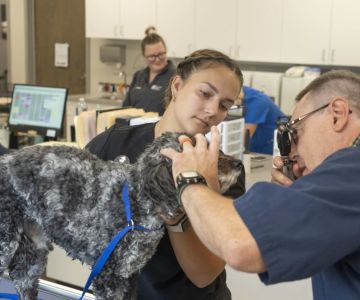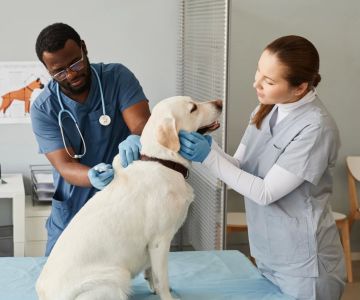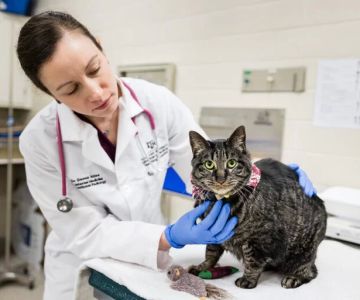- 1-What-Is-A-Veterinarian-Major-Called
- 2-Overview-Of-Veterinary-Medicine-Degree
- 3-Curriculum-And-Key-Subjects-In-Veterinary-Studies
- 4-Admission-Requirements-For-Veterinary-College
- 5-Real-Life-Stories-From-Veterinary-Students
- 6-Career-Paths-After-Completing-A-Veterinary-Major
- 7-Why-Choose-Veterinary-Medicine-And-Next-Steps
1. What Is a Veterinarian Major Called
The question “what is a veterinarian major called” often arises among students interested in animal health careers. The official academic major is typically known as Veterinary Medicine or sometimes Veterinary Science. This major prepares students to become licensed veterinarians who diagnose, treat, and prevent diseases in animals.
While the naming can vary by institution or country, veterinary medicine remains the standard title for the professional degree that leads to becoming a veterinarian. In many countries, this is a specialized degree taken after secondary education, focusing intensely on animal health and biology.
2. Overview of Veterinary Medicine Degree
A veterinary medicine degree is typically a comprehensive, multi-year program combining classroom instruction, laboratory work, and clinical rotations. Students learn everything from animal anatomy and physiology to pharmacology and surgical techniques.
The degree often culminates in a professional qualification, such as a Doctor of Veterinary Medicine (DVM) or Bachelor of Veterinary Science (BVSc), depending on the country. This qualification allows graduates to practice veterinary medicine legally and ethically.
3. Curriculum and Key Subjects in Veterinary Studies
Veterinary curricula are rigorous and cover diverse subjects to equip students with the necessary expertise. Key areas include:
Animal Anatomy and Physiology
Understanding the structure and function of different animal species is fundamental.
Pathology and Microbiology
Studying diseases and the microorganisms causing them.
Pharmacology and Therapeutics
Learning about medications and treatment options.
Surgery and Clinical Practice
Hands-on experience with animal care and surgical procedures.
This broad curriculum ensures that veterinary students gain both theoretical knowledge and practical skills required for their careers.
4. Admission Requirements for Veterinary College
Admission into veterinary programs is highly competitive. Requirements typically include strong academic records in sciences such as biology, chemistry, and physics. Many schools require entrance exams and interviews to assess candidates' aptitude and commitment.
Preparation for admission often involves volunteer work or internships in animal care settings, demonstrating passion and practical experience in veterinary fields.
5. Real-Life Stories from Veterinary Students
Consider Sarah, who always wondered “what is a veterinarian major called” before enrolling in veterinary medicine. Through her studies, she discovered a passion for animal surgery and now works in a specialty clinic. Her journey highlights the intense dedication and rewarding outcomes associated with this major.
Another student, Michael, shared how the veterinary science degree challenged him but provided invaluable hands-on skills, making his transition to veterinary practice smoother.
6. Career Paths After Completing a Veterinary Major
Graduates holding a veterinary medicine or veterinary science degree have varied career opportunities. Beyond clinical practice, they may engage in research, public health, animal nutrition, pharmaceuticals, or wildlife conservation.
Many veterinarians choose to specialize further, obtaining certifications in fields like surgery, dermatology, or cardiology, expanding their expertise and career options.
7. Why Choose Veterinary Medicine and Next Steps
Understanding what is a veterinarian major called helps clarify the educational path to a fulfilling career dedicated to animal care. If you’re passionate about science and animals, veterinary medicine offers an exciting blend of both.
To begin your journey, explore accredited veterinary programs and gather resources to support your application. For those looking to deepen their knowledge or find the best academic materials, trusted platforms provide valuable guidance and study aids to help you succeed.











